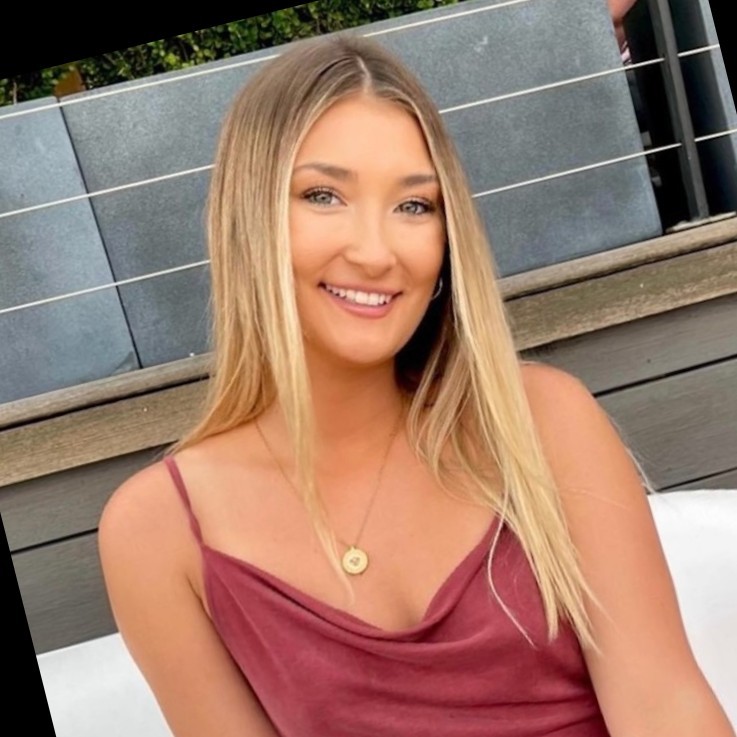Ready to create more pipeline?
Get a demo and discover why thousands of SDR and Sales teams trust LeadIQ to help them build pipeline confidently.





Get a demo and discover why thousands of SDR and Sales teams trust LeadIQ to help them build pipeline confidently.
I can’t count how many times I’ve heard reps say, “Cold calling is the worst!”
As an admirer from afar, I see the fear in reps when they hear the word cold. Like a shiver down their spine as if they are reliving the worst memory in their life.
But rightfully so, I remember when I had to make cold calls to small business owners - half the calls were just owners telling me to, “F*** off," and, "They were not interested in anything I have to offer." Not going to lie, it hurt my feelings every time.
I even remember having a conversation with Sarah Drake (Senior SDR for Directive) where she mentioned her worst cold call
“I had a call where I did my normal beginning and the person said, 'Let’s see what kind of trash sales person you are…'"
OUCH!
Even listening to that hurt my soul, but after all that we all know how crazy important cold calling is to prospecting. There is a reason why so many sales reps rely on it to generate millions of dollars in sales for their companies.
But a major flaw a lot of reps go through is how to be effective while cold calling. It’s very similar to starting stand-up comedy: understanding how to avoid bombing is so hard.
I used to spend hours online looking for answers on how to be funny. When I kept bombing, all I wanted to read were other comedians worst bombs to keep my head up.
Kevin Hart once talked about how someone threw a chicken wing at him while he was on stage, and Bill Burr mentioned how he was literally boo’d off stage.
A girl named Yamenika Saunders, one of the best up-amd-coming stand-ups today spoke about how she was boo’d all the way from the Apollo back home. IT WAS EPIC AND HORRIFYING ALL AT THE SAME TIME. A must listen if you want to understand perseverance.
One thing I realized is that there is a methodology to cold calling. Once you understand it, it can help you push through your calls while you are learning how to be effective.
I sat down and spoke with a bunch of cold calling experts: Cara Fellemen (Director of Sales at Resy), Sarah Drake (Senior SDR at Directive), Ryan Wilusz (Sales Manager at LeadIQ) and Aaron Browning (VP Sales at FrontSpin). All who have been doing it for years and to this day still prospect themselves.
See the biggest key for cold calling is doing your mental preparation. Understand the opportunity that lies ahead.
For me the best SDRs have the entrepreneurial chip.
Looking back at the best-performing SDRs I have worked with, they have moved through companies fast or gone on to create or run their own companies.
Mainly because it's all about the leads. If you can create something out of nothing, your opportunity is significant.
If an SDR is converting cold leads better than the rest, they should be using that leverage to get more inbound, move to an AE role faster, or get a better territory. Maybe this isn't applicable to a majority of SDRs, but it helped me remain committed to the job knowing it was a huge stepping stone.
So the risk vs. reward is off the charts if you are willing to put in consistent effort. Remember; this is a function most run from so if you do it well, "you own 'em" .....ask your boss for whatever you desire (leads, territory, his salary, etc).
Do what it takes to motivate yourself before you dial - whether it’s music or listening to YouTube clips of Tony Robbins, or movies like Tommy Boy. Just make sure you take care of your mental preparations.
The last thing you want to do as a rep is get connected with a high value prospect and word vomit all over their shoes - or even worse, freeze up and not know what to say. Make sure you practice with your teammates and manager before actually reaching out to a prospect.
Having an understanding of who they’re selling to helps you derive relevant pain-related questions.
The first 5 seconds still scares the $hit out of me, but the internet has made things a lot easier. Do some research and find an opener you're comfortable with.
Remember, finding your voice and tone is very important. You want to sound human and likable. My go-to is a compliment on something job related off of their LI profile that can lead to an actual discussion. Everyone loves compliments and to talk about themselves. Not many are going to hang up after a compliment.
Then pitch your value prop and KEEP IT SIMPLE (like talking to a 6 year old simple).
Do not ever open with: Are you busy? / Do you have a few minutes? / Is this a bad time? / Did you get my email? These questions are all dead ends and will lead to a "No" and/or hang up.
Upfront contracts give your prospect an understanding of the purpose of the meeting, length of time, and your expected outcome. Never immediately go into your pitch when the customer answers the call.
The reason upfront contracts work is that if you gain commitment to pitch, those next 25-30 seconds are yours and the prospect is paying close attention to what you have to say.
Without gaining acceptance your pitch may be fantastic, but could go in one ear and out the other.
According to a 2017 study by CallHippo, the best time to call prospects is from 4:00pm-5:00pm, followed by 11:00am-12:00pm.
If you’re not territory based you can actually mimic this across time zones for more high probability connects.
Each company is gong to have certain common objections (i.e. using a competitor, no budget, not interested, reach back out in X months).
The last thing you should be doing on a cold call is thinking about how to overturn an objection.
You should know what to anticipate and be able to react.
Have your go-to responses and make sure they include open-ended questions.
Starting with a "What" question is my go to.
Prospect: "We are using (your competition)"
You: "I appreciate that (I use this line after almost every objection), they have a good platform/service, etc." "What is that relationship like?" They should open up and tell you what is good and bad. If not, you can ask what they don't like and then take the conversation from there.
It’s important to be able to pivot value props based off a customers pain.
Always communicate what is in it for them. If the prospect doesn’t know what is in it for them, do not expect them to say yes to the demo. And if for some reason they do say yes, but do not know how this call benefits them, the odds are that you and your AE will be the only two in that meeting.
Not everyone is going to be receptive of this - however, many people in SaaS and B2B don’t even have desk phones. Calling mobile numbers ensures higher connect rates. We call cell phones here at LeadIQ and our SDR team had 15% connect rates in September. That’s roughly 200% the industry average of 4-6%.
Set time aside each day to review your calls. Regardless of how the call went, you will learn something every time you listen to a call which will help you get better. At LeadIQ, we use Gong to review our calls and we love it so much that we created a partnership with them to bundle our products. Learn more about the partnership here, if you're interested.
Not everyone is going to be super thrilled you’re calling them out of the blue. You may get lectured, hung up on, or in some cases even sworn at. You are just doing your job and getting the no’s is only going to lead you towards a yes.
If you called them yesterday at 10:00am and they didn’t answer try calling today at 4:00pm - the definition of insanity is doing the same thing and expecting different results.
Your job is to get them to the next step (appt, demo, disco call, etc). Don't try and get their social security number. Once there is interest, go for a direct close.
Be yourself, put in consistent effort, and the world is yours!
Subscribe for updates.